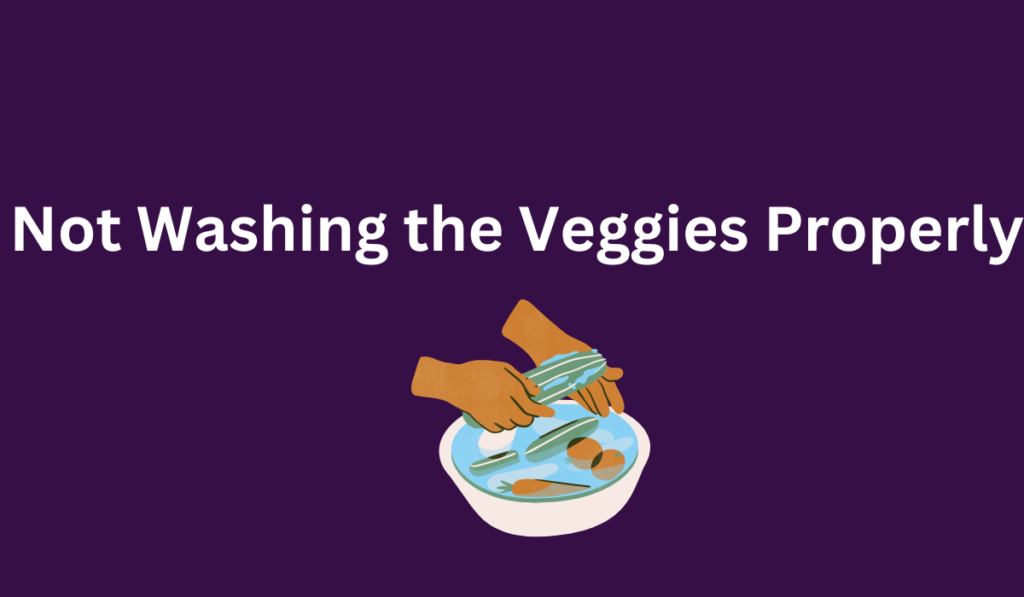
Salad is a dish typically made from a mixture of raw or cooked vegetables, fruits, nuts, and dressings, which can be served as an appetizer, side dish, or main course. Salads can be made in countless variations and can be tailored to individual tastes and dietary preferences.
Some common salad ingredients include leafy greens like lettuce and spinach, cucumbers, tomatoes, carrots, peppers, onions, avocado, and various fruits such as strawberries, apples, or oranges.
Salads are often considered a healthy food choice due to their high nutrient content and low-calorie count. They are a great way to incorporate more vegetables and fruits into one’s diet, which can help promote overall health and wellbeing.
There are many different types of salads, including green salads, fruit salads, pasta salads, potato salads, and grain salads. Salads can be dressed in a variety of dressings, such as vinaigrettes, creamy dressings, or oil-based dressings.
Consuming a properly selected salad can be beneficial to your body and digestive tract. However, if you do not choose the ingredients wisely, it can lead to uncontrollable loose stools. This may occur due to a sudden increase in fiber intake.
It is common to experience occasional diarrhea after consuming a salad, but if the symptoms persist for more than two days, it is advisable to consult a physician.
The phrase “salad goes right through me” refers to a unique but explainable feeling that some individuals experience immediately after eating a salad. This sensation is often accompanied by a sudden urge to rush to the bathroom or toilet, and can result in a bowel movement.
This is a common occurrence in individuals with conditions such as ulcerative colitis or Crohn’s disease.
In this context, we will be discussing why some individuals experience this phenomenon and what factors may contribute to it.
Why Does Salad Go Right through Me?
Salad, especially leafy greens, contains high amounts of fiber, which is beneficial for maintaining good digestive health. However, for some individuals, consuming large amounts of fiber-rich foods, including salad, can cause digestive discomfort and result in loose stools or diarrhea.
This may be due to several reasons, such as consuming too much insoluble fiber or not drinking enough water, which can lead to bloating and discomfort in the digestive system.
Additionally, some individuals may have a sensitivity to certain types of vegetables or fruits commonly found in salads, which can lead to digestive symptoms.
In some cases, this phenomenon can be attributed to underlying digestive disorders such as irritable bowel syndrome (IBS), Crohn’s disease, or ulcerative colitis. These conditions can affect how the digestive system processes and eliminates food, leading to increased bowel movements and diarrhea after consuming certain types of food, including salads.
Additional Information: Causes
Not Washing the Veggies Properly

Another reason why salad can go right through you is if the vegetables are not washed properly before consumption. Raw vegetables, including those commonly found in salads, can harbor harmful bacteria, such as E. coli and Salmonella, which can cause foodborne illnesses and digestive distress.
If the vegetables in a salad are not washed or rinsed thoroughly, these bacteria can survive and multiply, leading to infection and gastrointestinal symptoms. Therefore, it is essential to wash all vegetables before eating, especially if they will be consumed raw.
To wash vegetables properly, first, remove any damaged or wilted leaves, then rinse the vegetables under running water. Use a produce brush to scrub the surfaces of vegetables with firm skin, such as cucumbers or carrots.
Additionally, it is advisable to soak the vegetables in a solution of water and vinegar or use a commercial produce wash to remove any residual dirt or bacteria.
By washing vegetables thoroughly before consuming them in a salad, you can reduce the risk of foodborne illness and digestive discomfort, ensuring that your salad is both healthy and safe to eat.
The Amount of Fiber
Another reason why some people experience digestive discomfort after eating salad is due to the high amount of fiber present in most leafy greens and vegetables commonly found in salads.
While fiber is essential for maintaining good digestive health, consuming excessive amounts can cause digestive distress, including gas, bloating, and diarrhea. This is especially true if your body is not used to a high-fiber diet, and suddenly increasing your fiber intake through eating salad can cause these symptoms.
To avoid this issue, it is advisable to gradually increase your fiber intake over time, allowing your body to adjust to the change. Additionally, choosing low-fiber vegetables, such as cucumbers and tomatoes, over high-fiber ones like broccoli and cauliflower, can help ease digestive discomfort.
It is also important to note that some medical conditions, such as irritable bowel syndrome (IBS) and inflammatory bowel disease (IBD), can make it difficult for the body to process high-fiber foods, including salad.
In these cases, it may be necessary to limit or avoid certain vegetables or to cook them before consumption.
The Tomatoes Amount
Tomatoes are a common ingredient in salads, and they are known to cause digestive distress in some individuals. This is because tomatoes are acidic and can irritate the lining of the stomach and intestines, leading to symptoms such as abdominal pain, bloating, and diarrhea.
However, it is important to note that this is not a common problem for most people, and tomatoes are generally considered a healthy and nutritious addition to a salad. Additionally, cooking the tomatoes or removing the skins can reduce their acidity and make them easier to digest.
Do You Use Cheese In Your Salad
Cheese is a popular ingredient in many salad recipes, but it can cause diarrhea in some people, especially those with lactose intolerance. Symptoms of lactose intolerance include cramps, bloating, diarrhea, and gas.
Lactose intolerance occurs when the small intestine does not produce enough of the enzyme lactase, which is necessary for digesting lactose. If you experience symptoms after eating cheese, it is possible that you may also have similar reactions to other dairy products.
It might be the dressing.
The dressing used on salads can also be a potential cause of diarrhea for some people. Many commercial salad dressings contain high amounts of fat, sugar, and artificial additives, which can be difficult to digest for some people.
Additionally, some people may be sensitive to certain ingredients commonly found in salad dressings, such as vinegar, citrus juice, or garlic. If you are experiencing diarrhea after eating salad, it may be worth trying a different type of dressing or making your own using fresh, whole-food ingredients.
The Salad Might Be Quite Heavy
Heavy salads can also be a cause of diarrhea for some people. Salads that are high in fat or protein, such as those containing a lot of cheese, meat, or nuts, can be difficult to digest and can lead to diarrhea, especially if consumed in large amounts.
Similarly, salads that are very large or contain large amounts of raw vegetables or fruits may be difficult to digest, causing discomfort and diarrhea. It is best to listen to your body and eat salads in moderation, selecting ingredients that are easy to digest and do not cause discomfort.
Gastro Colic Reflex
The Conditions That Affect Gastro colic Reflex
As mentioned earlier, the gastrocolic reflex can cause one to feel the urge to pass stool after eating. This reflex can be exacerbated by certain health conditions, such as Irritable Bowel Syndrome (IBS), which can cause food to move through the digestive system more quickly than normal. Other conditions that can increase the rate of the gastrocolic reflex include:
- Celiac disease
- Anxiety
- Food intolerances and allergies
- Gastritis
- Crohn’s disease
- Inflammatory bowel disease.
Experiencing the gastrocolic reflex may also lead to other symptoms, such as
- Mucus in the stool
- Abdominal discomfort or pain
- Constipation
- Diarrhea
- Need to pass gas frequently.
The Right Time to See the Doctor

Physicians consider the gastrocolic reflex a normal bodily function that occurs when a person eats. It’s characterized by the urge to have a bowel movement after eating. Typically, this is not a cause for concern and doesn’t require medical attention.
However, if additional symptoms accompany the urge to have a bowel movement, or if diarrhea lasts for more than two days, it’s recommended to see a doctor. These symptoms could be an indication of an underlying health issue that requires medical attention.
How To Prevent And Treat
As mentioned, multiple times, this issue is relatively common, so there’s no need to try any complex treatments.
The good news is that there are several things you can do to help alleviate the severity of the problem. Here are some suggestions:
Changing The Diet
Certain foods can trigger a more intense gastrocolic reflex than others, so it’s important to avoid them, whether in salads or other meals. Here are some of the foods that you should be particularly careful with:
- High-fiber foods
- Dairy products
- Greasy or fatty foods
You can also use a food diary to help you identify the types of food that increase your gastrocolic response. Keep a record of the foods you eat daily and how they affect your digestive system. Once you identify the foods that trigger the issue, try to avoid them temporarily.
Conclusion
It’s important to keep in mind that there are numerous types and combinations of salads, making it difficult to pinpoint the exact cause of the issue.
If the diarrhea is severe or persistent, seeking medical attention is recommended. In less severe cases, eliminating certain ingredients from the salad or diet may help alleviate symptoms.
By removing certain foods from the diet or salad, one can determine the specific ingredient causing the issue. Once the issue has subsided, reintroducing the eliminated foods or ingredients can help identify the specific trigger. This process can aid in preventing the issue from reoccurring in the future.